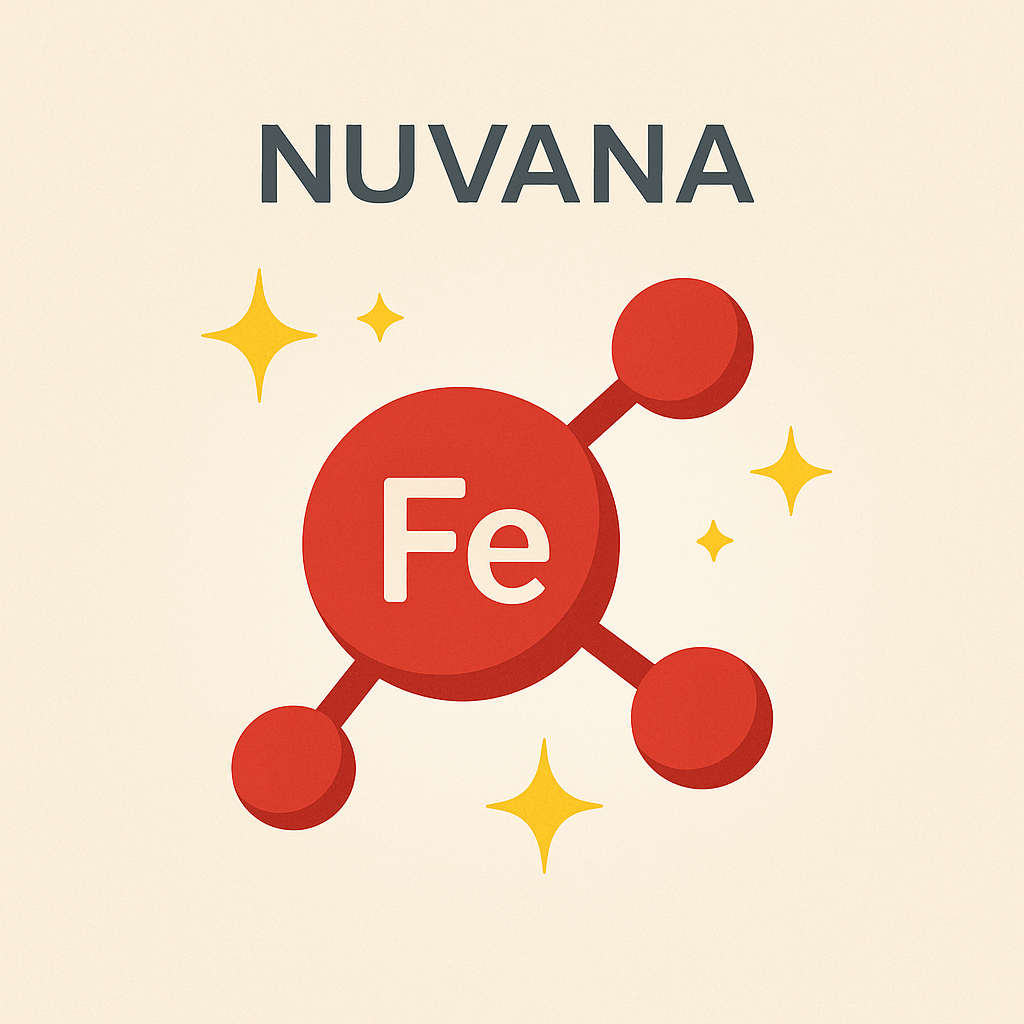
The Power of Iron: Why This Essential Mineral Is Key to Your Health
Share
Iron may not be flashy, but it plays a starring role in keeping your body energized, focused, and strong. From transporting oxygen in your blood to supporting cognitive performance, iron is a fundamental nutrient—especially important for growing children, menstruating women, athletes, and anyone feeling fatigued.
Let’s explore what the science says about this mighty mineral.
🔴 1. Iron and Oxygen Transport
Iron is a core component of hemoglobin, the protein in red blood cells that carries oxygen from your lungs to the rest of your body. When iron levels drop, so does your oxygen supply—leading to fatigue, weakness, and even shortness of breath.
A study published in The Lancet (2016) emphasized that iron deficiency is the most common nutritional deficiency worldwide, and often the first to show symptoms (WHO, 2016).
🩸 Without enough iron, your cells can't perform efficiently, leaving you tired and sluggish.
🧠 2. Cognitive Function and Brain Performance
Iron isn't just for your body—it’s crucial for your brain. It supports the formation of neurotransmitters like dopamine and serotonin, which affect attention, mood, and learning.
According to a 2013 review in Nutritional Neuroscience, children and adolescents with low iron levels performed worse on tests of memory, concentration, and IQ compared to those with adequate levels (Beard et al., 2013).
🧠 Iron boosts brain power—literally.
💪 3. Energy and Exercise Performance
Iron plays a vital role in converting nutrients into cellular energy (ATP). This makes it especially important for physically active individuals. Athletes, especially females, are at a higher risk of deficiency due to increased red blood cell turnover and loss through sweat.
A 2017 study in American Journal of Clinical Nutrition showed that iron supplementation improved endurance and reduced fatigue in female athletes with low iron stores (Garvican-Lewis et al., 2017).
🚴♀️ Want more stamina at the gym? Iron could be your secret weapon.
👩⚕️ 4. Immune Support and Disease Resistance
Iron supports the development of white blood cells and contributes to a well-functioning immune system. A deficiency may compromise your body’s ability to fight off infections.
In a 2015 study in Journal of Trace Elements in Medicine and Biology, iron-deficient individuals were shown to have a higher risk of infections and slower recovery from illness (Oppenheimer, 2001).
🛡️ Iron helps your body stay resilient and strong.
🍳 5. Getting Enough Iron
There are two types of dietary iron:
-
Heme iron (found in meat, poultry, and fish) – easily absorbed
-
Non-heme iron (found in plants like spinach, lentils, and tofu) – less readily absorbed
To increase absorption, combine iron-rich foods with vitamin C sources like oranges or strawberries. In some cases—especially during pregnancy or adolescence—iron supplements may be recommended.
Always consult with a healthcare provider before starting supplements.
📊 Signs of Iron Deficiency
-
Fatigue or weakness
-
Pale skin
-
Cold hands and feet
-
Poor concentration
-
Headaches
-
Restless legs at night
Iron deficiency anemia can be serious if left untreated, so regular checkups are important.
✅ Final Thoughts
Iron fuels your body and mind—from your red blood cells to your mood and memory. Whether you're growing, training, or simply trying to get through your workday with energy, iron deserves a permanent place on your nutrition radar.
Don't underestimate this small but mighty mineral—it keeps everything running smoothly.
